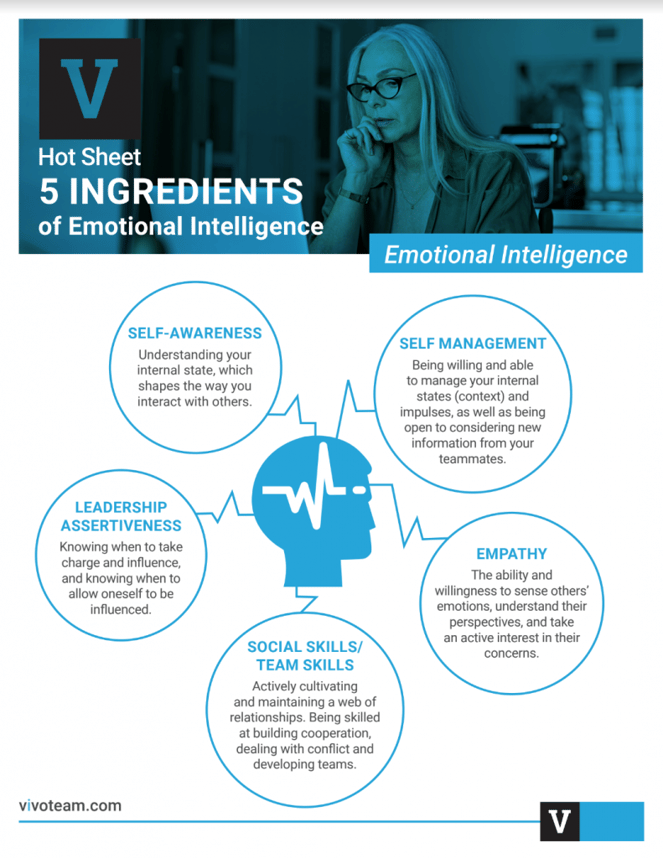The technical skills that helped you get promoted into a leader/manager position does not guarantee your future success. As Marshall Goldsmith says, “what got you here, will not get you there.”
Moving into a leadership role requires a very different, complementary skill set. You go from doing to working with people to get things done. There is one key set of skills required. It’s called emotional intelligence. According to the Harvard Business Review, it accounts for nearly 90% of what sets high performers apart from peers with similar technical skills and knowledge.

What is Emotional Intelligence?
Emotional intelligence is defined as:
- The ability and willingness to understand and manage your own behaviors and emotions.
- Recognizing, influencing, and facilitating the behaviors of others.
- Helping people develop their unique talents and personal satisfaction.
Over the years, emotional intelligence (EQ) has evolved into a core leadership skill. Research from TalentSmart shows that emotional intelligence is the strongest predictor of performance. Leaders with a highly developed EQ are more likely to stay calm under pressure, resolve conflicts productively, and respond to people with empathy.
Emotional intelligence matters because leaders set the tone of their organization. An effective leader pours energizing oxygen into the work atmosphere. If they lack emotional intelligence, it has a stifling effect on the workplace resulting in lower employee engagement and a higher turnover rate.
The Five Ingredients of Emotional Intelligence
1. Self-Awareness
Self-awareness is your ability and willingness to understand your strengths and weaknesses and to recognize how your words, behaviors, and emotions affect you and your team’s performance.
2. Self-Management
Self-management refers to the ability and willingness to manage your words, behaviors, and emotions, particularly in stressful situations, while maintaining a calm and positive outlook. Leaders who lack self-management may have a hard time keeping their impulses in check. A key leadership responsibility is to keep the end goal in mind—that is to ask: “How will what I am doing or behaving affect people’s performance and satisfaction?”
3. Empathy
As a leader, “putting yourself into someone else’s shoes” is crucial to developing ideas and solutions, problem-solving, effective communication, and avoiding or preventing conflicts. When people feel understood they are more likely to voluntarily accept the leader’s influence. A leader who has mastered empathy is able and willing to:
- Listen for understanding using additional questions and small encouragements.
- Give corrective, praising, and inspiring feedback with respect and authenticity.
- Build a productive work atmosphere that builds team competence, motivation, and collaboration.
4. Social Skills
Social skills are the ability and willingness to interact well with others. While it’s important to understand and manage your own behaviors, words, and emotions, you also need to know how to read a room. It is key to developing psychological safety in the workplace.
5. Leader Assertiveness
Leader Assertiveness refers to your ability and willingness to influence, coach, and mentor others and resolve conflict effectively. It’s about using the above skills to get stuff done in spite of setbacks—both structurally and interpersonally. A leader’s job is to be effective. It is not about being liked.
.png?width=125&height=61&name=Logo%20-%20Vivo%20Team%20-%20White%20(2).png)

